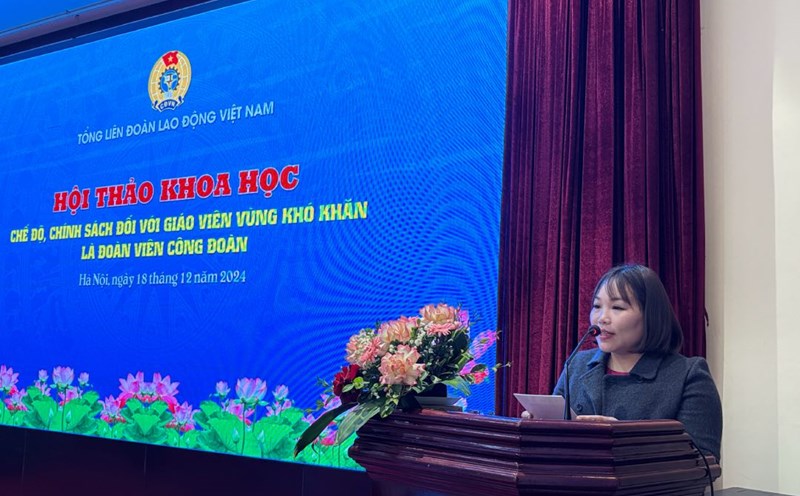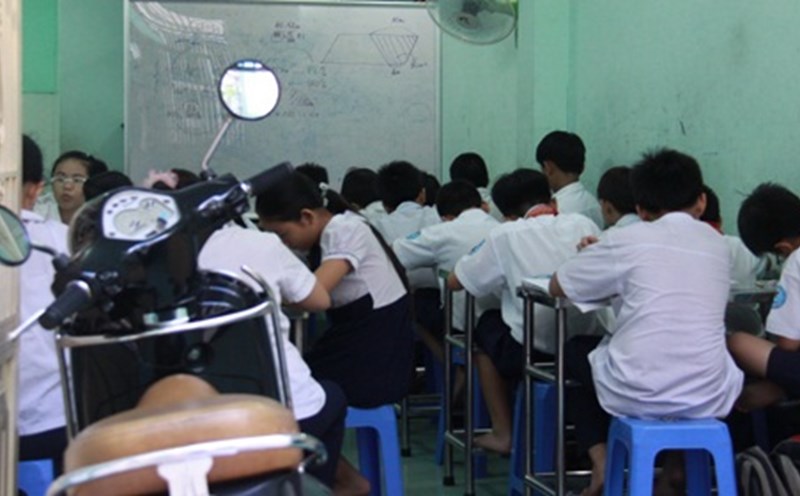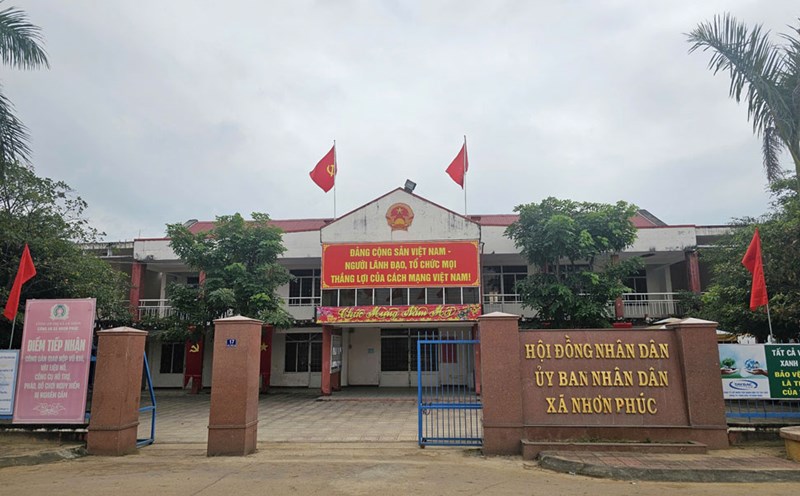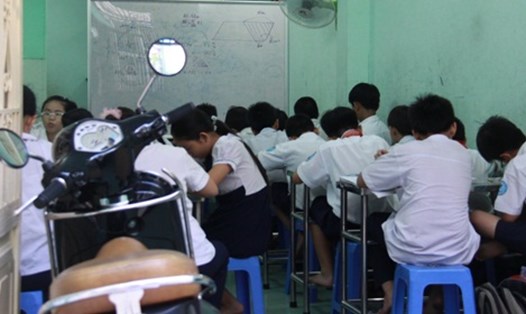Proposal to increase preferential allowances for teachers
Speaking at the conference, Ms. Chiem Thi Bach Yen, a teacher at Tai Van Kindergarten, Tran De District, Soc Trang Province, said that the implementation of preferential treatment and attractive allowances has partly reduced material difficulties and improved the lives of teachers working in difficult areas.
However, the regulation on implementing subsidies based on household registration is causing certain disadvantages for local teachers. The female teacher analyzed that according to Decree 76/2019/ND-CP, teachers who come to work in areas with particularly difficult socio-economic conditions will receive a 10-month salary allowance. However, the decree also stipulates that the first-time subsidy regime only applies to those who move to work from other places, not to those with permanent residence in the area.
In fact, teachers from other places or teachers with registered residence in difficult areas must overcome difficulties in school facilities to complete their tasks.
In addition, although the salary regime for preschool teachers has been paid attention to, it is still low, while they have to work overtime and take on many different jobs. Therefore, Ms. Chiem Thi Bach Yen proposed to increase the preferential allowance for preschool teachers; proposed that preschool teachers be allowed to retire 5 years earlier than the regulation.
Ms. Pham Thi Nghi, a Literature teacher at Quan Hoa High School, Quan Hoa District, Thanh Hoa Province, said that in terms of allowances, teachers in disadvantaged areas often receive allowances such as attraction allowances and special allowances. However, the allocation and implementation of these policies in some localities is still inconsistent, leading to inequities between regions.
Although there have been adjustments in the teachers' salary table, the actual salary of teachers in difficult areas is still low compared to living needs.
Ms. Pham Thi Nghi suggested that there should be more specific measures to improve allowances and salaries for teachers. Along with that, it is necessary to clearly stipulate the levels of attraction allowances, special allowances and ensure consistent implementation across the country, avoiding discrimination between regions.
The female teacher also suggested that there should be policies and support to build and repair teachers' public housing, especially in mountainous and highland areas, so that teachers can feel secure in their work and contribute to the industry and society.
Improve inadequate policies
Mr. Ngo Duy Hieu - Vice President of the Vietnam General Confederation of Labor - said that in recent times, the Party and the State have paid great attention to building and developing the teaching staff, including those working in disadvantaged areas. Policies have been increasingly progressive to support and retain teachers. Many localities and trade union organizations have paid great attention, cared for, and shared material and emotional support to reduce the difficulties of teachers through various activities. However, in reality, there are still many problems, especially some policies that are not suitable for practice, do not meet requirements, and cannot be implemented in practice.
The Vice President of the Vietnam General Confederation of Labor acknowledged the efforts of the trade union in sharing and alleviating the difficulties of teachers. Mr. Ngo Duy Hieu suggested that it is necessary to effectively implement existing policies and improve inadequate policies. In particular, the trade union organization needs to participate in monitoring the implementation of policies with localities; continue to demonstrate the role of the trade union in caring for and protecting union members in difficult areas.
Mr. Ngo Duy Hieu said that the proposed opinions at the workshop will be recorded and compiled by the Vietnam General Confederation of Labor to be sent to the relevant authorities, thereby contributing to perfecting the regime and policies for teachers in disadvantaged areas.











